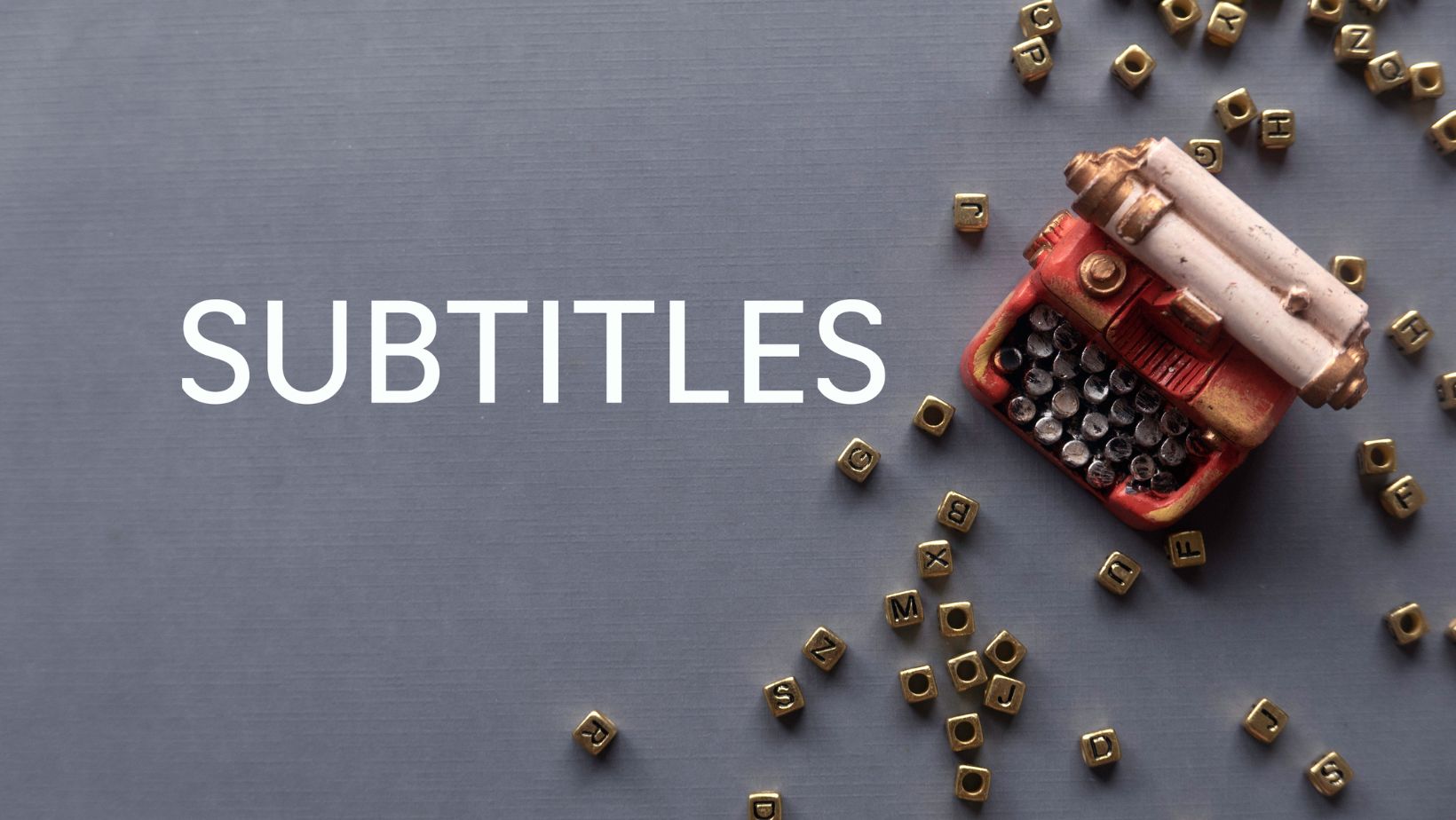People can now access content through the internet more efficiently, including watching videos and films alongside educational materials from diverse cultural backgrounds. Language barriers are the main obstacle to worldwide content sharing, which creates accessibility issues. Videographers face restricted reach because their content becomes unusable to viewers without knowledge of the source language.
The need for subtitles has long been solved, yet conventional subtitle generation and distribution systems face multiple restrictive factors. Web3 technologies enable a disruptive shift that will transform subtitle services into a fully accessible content platform that supports worldwide media exchange.
The Limitations of Traditional Subtitle Systems
The current subtitle creation process, along with the distribution framework, depends heavily on centralized management systems. Subtitle creation and distribution practices occur through manual creator work or third-party services that face high price tags and restricted language options. Platform policies, along with a lack of incentives and inconsistent quality, affect the functionality of community-driven subtitling initiatives. Goals of ownership attribution remain undefined causing issues with piracy alongside copyright infringement.
A major drawback exists due to the inability to confirm the correctness of text translations. Subtitles frequently lack proper quality controls during their creation process, thus enabling misunderstandings and misinterpretations to occur. Audience members cannot verify if subtitling materials accurately show original material content. The current subtitle structure shows how an impartial incentive-based mechanism with worldwide distribution transparency would help subtitle creation and distribution.
How Web3 is Changing the Subtitle Landscape
Web3 implements decentralized blockchain technology, which threatens to change the current subtitle industry. Web3 establishes decentralized subtitle creation and circulation operations through its user-managed structure, which provides power to creators and translators. Web3 subtitles make global content sharing more secure by integrating blockchain technology, smart contracts, and decentralized autonomous organizations (DAOs), which provide transparent and efficient systems.
The main benefit of Web3 subtitles lies in their ability to prove ownership ownership. The blockchain ledger permanently stores subtitles while maintaining an unalterable record, which grants proper credit to all contribution participants. Through this tracking system, subtitle origin can be monitored, which helps protect translators against unauthorized file modification or copyright trouble. Smart contracts work to generate automatic payments that provide translators just compensation according to their work usage rates.
Incentivizing Accurate and High-Quality Subtitles
The main problem with traditional subtitle generation stems from the absence of desirable compensation systems for translators. Most subtitle efforts depend on self-motivated contributors who create inconsistent results while providing translations in limited language choices. The Web3 framework solves this challenge through system rewards that pay users tokens for developing high-quality work.
Translators can get compensated through cryptocurrency or tokens when payments are made through blockchain micropayments. The payment system relies on smart contracts to deliver equitable compensation when user assessments validate the contents through independent evaluation. The system generates translator motivation and professional linguist participation, who typically avoid unpaid work. The distributed structure of Web3 makes title qualities grow better over time because contributors receive payment according to their knowledge level.
A reputation model would establish translators who demonstrate accuracy to receive increased pay and develop trust inside the system. An environment promoting fair competition operates since quality precedes speed or convenience.
Decentralized Autonomous Organizations (DAOs) for Community-Driven Subtitles
Community members operate DAOs independently by using voting systems, which let them make decentralized decisions for the organization. DAOs enable subtitle creation to evolve into a collective operation that promotes transparency and fairness during the process and includes everybody.
A subtitle DAO under Web3 governance enables users to present translation work proposals, voted-based evaluation, and proper compensation for contributors. Direct interactions become possible through this system because it removes intermediaries from the process between content creators, translators, and their audience members. The decentralized governance system allows correct translations with cultural suitability to emerge first due to its prevention of both translation bias and censorship attempts.
DAOs can support financial initiatives that fund subtitling projects for obscure languages that traditional translation efforts tend to ignore. These organizations use decentralized finance (DeFi) rewards to promote global language preservation and cultural heritage maintenance.
Smart Contracts for Transparent Subtitle Licensing
The content industry has faced ongoing copyright disputes and unauthorized subtitle usage challenges for many years. Smart contracts in Web3 offer automated licensing agreements and systems that ensure proper subtitle usage.
Content creators can create automatic revenue-sharing agreements for translators through smart contracts when establishing subtitle usage conditions. A portion of the revenue from monetized video use can be allocated to subtitle contributors according to previously agreed terms through subtitle file licensing. Through this system, creators of subtitles get protected intellectual property rights while receiving proper compensation for their translation work.
Through its decentralized distribution function, smart contracts let subtitle files be dispersed freely so users can reuse them without worrying about unauthorized changes. People can check subtitle authenticity by using blockchain records so they get proper and unchanged translations.
Expanding Content Accessibility for a Global Audience
Through Web3 subtitles, the world can gain access to various types of content at any location. The combination of educational videos with online courses and documentaries alongside entertainment content becomes accessible to a large number of viewers through decentralized subtitle functionality.
The expense of translation makes most online educational platforms restrict their language support capabilities. The Web3 subtitle ecosystem allows non-English speaking students from different regions to access their native language learning materials of high quality. Small filmmaking professionals and content creators can build larger fan bases without investing in the high costs of localization services.
Web3 subtitles will strengthen linguistic communities that lack representation through their capability to provide translation services for regional and indigenous languages. The platform provides accessibility of valuable information beyond the dominant world languages to users speaking minor language dialects.
The digital era presents ongoing difficulties in breaking language barriers, though Web3 subtitles offer a strong potential answer for global content sharing.





